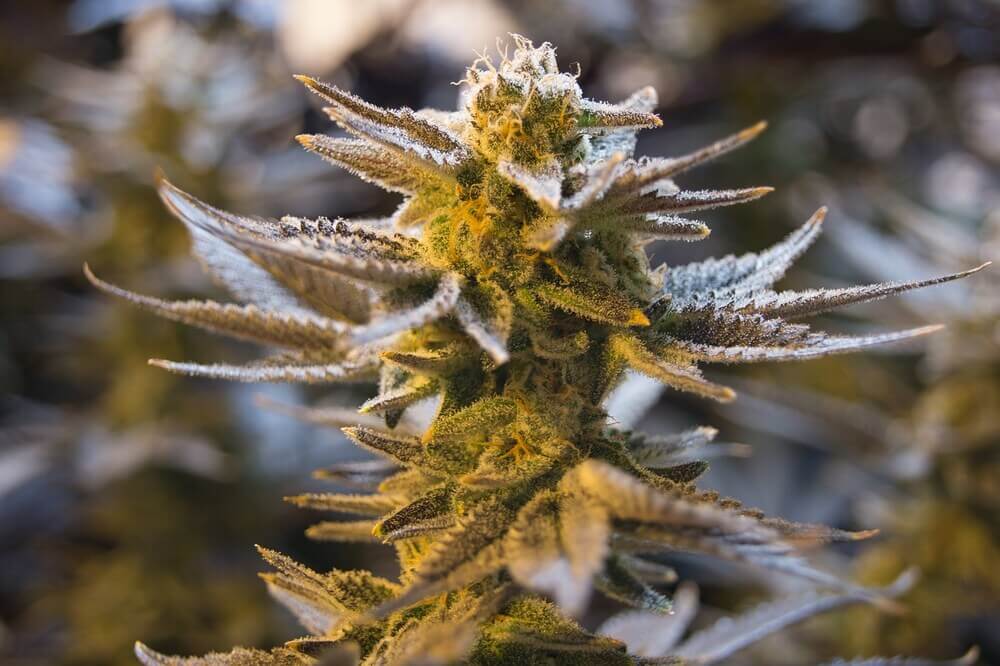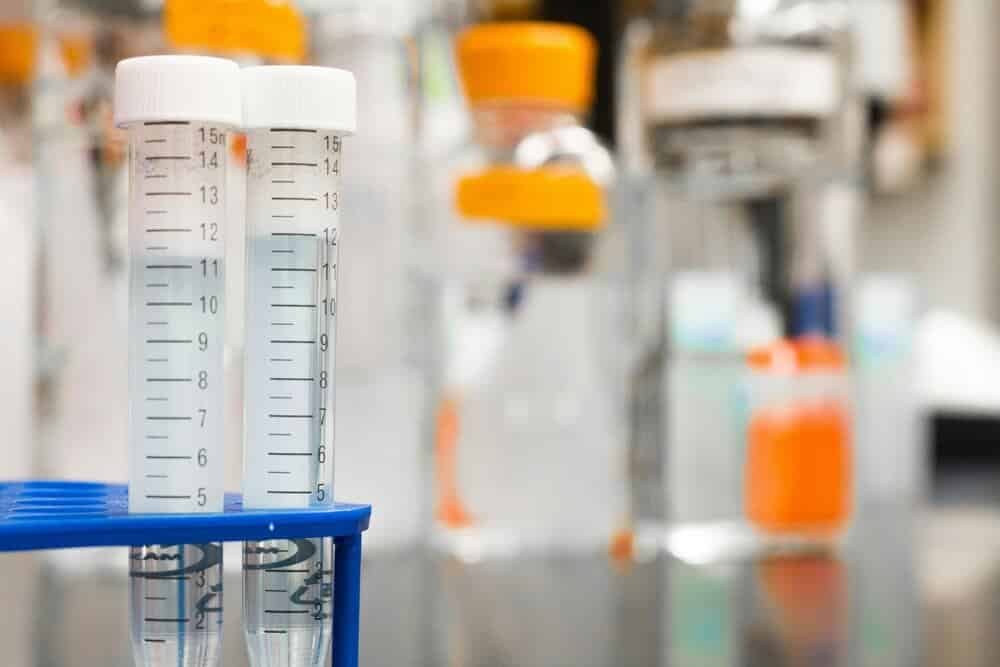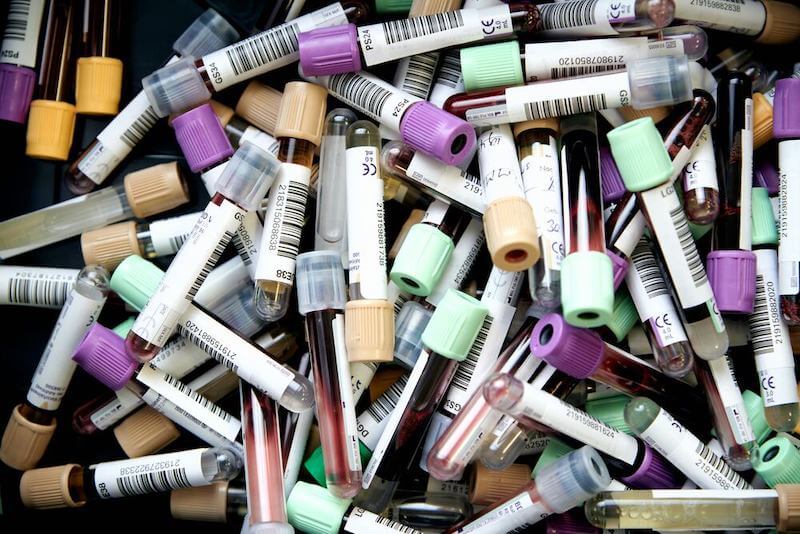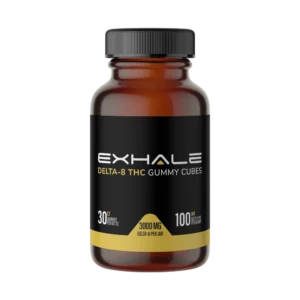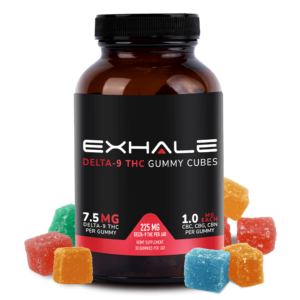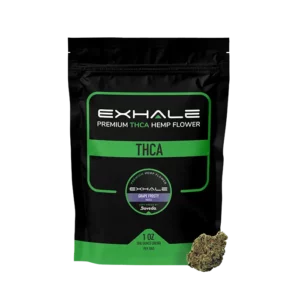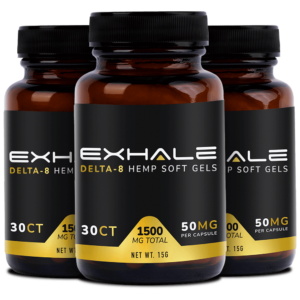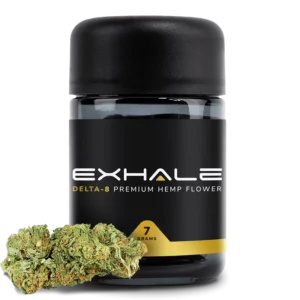
How Long Does THCA Stay In Your System?
Curious minds often ponder the lingering effects of various substances in their bodies, especially compounds like THCa. “How long does THCa stay in your system?” This question is not just a matter of passing curiosity but can influence decisions regarding consumption, particularly for those subject to drug testing or seeking to understand the duration of potential effects. In this comprehensive exploration, we delve into the intricacies of THCa metabolism, shedding light on its presence in the body over time.
From understanding the physiological processes involved in THCa breakdown to exploring factors that may influence its retention, this blog aims to provide clarity on a topic often shrouded in mystery. Whether you’re a newcomer seeking knowledge or a seasoned consumer curious about the science behind THCa, we’ve got you covered. Get ready to demystify THCa and uncover the answers to all your queries. Dive into our insightful content and empower yourself with valuable information. Ready to explore the world of THCa further? Try our premium THCa products and experience the difference firsthand!
Significance of Understanding THCa’s Duration in the Body
Curious about how long THCA stays in your system? Delta-9-tetrahydrocannabinolic acid A, aka THCA, is a non-psychoactive compound in cannabis that requires heat for activation, unlike its psychoactive cousin, THC (Delta-9 THC, D9 THC, THC). Factors influencing its duration include metabolism, dosage, consumption method, heat activation (decarboxylation), and the type of drug test.
Notably, legalities surrounding THCA are less problematic, as it’s legally available in many cannabis dispensaries worldwide. Its popularity can be attributed to its potential health benefits and non-psychoactive effects, making it a legal hemp market favorite. Whether consumed raw, as part of cannabis juice, or transformed into THC, THCA provides diverse options within the realms of legal cannabis use.
Is THCA Legal?
The legality of THCa (tetrahydrocannabinolic acid) depends on the jurisdiction you are in. THCa is the precursor to THC (tetrahydrocannabinol), the psychoactive compound found in the cannabis plant. In many states, THCa is considered legal if it is derived from hemp plants containing less than 0.3% THC on a dry weight basis, as specified by the 2018 Farm Bill in the United States.
However, it’s essential to note that laws regarding cannabis and its derivatives can vary widely from one place to another. In some regions or countries, THCa may be subject to strict regulations, while in others, it may be entirely prohibited.
If you’re considering using or dealing with THCa, it’s crucial to research and understand the specific laws and regulations in your area to ensure compliance with local legal requirements.
How Long Does THCA Stay in Your System?
Determining how long THCA stays in the body is a tricky business. Why the uncertainty? Well, raw THCA doesn’t possess psychoactive properties, and it’s perfectly legal. These characteristics allow it to stay out of the spotlight of scientific research, unlike its twins, THC and CBD. Consequently, studies on THCA’s duration in the body are rare and inconclusive. Plus, when it comes to most drug tests, it’s rare to have a positive test result because they barely ever check for THCA, mainly because they aren’t aware of its existence. This makes it the perfect cannabinoid to consume when trying to stay under the drug test radar.
Caution: opting for raw cannabis with high THCA content is less likely to trigger alarms in standard urine tests, while smoking THCA products increases detection risks. Heating THCA transforms it into THC, which is detectable in blood, urine, and saliva tests.
Will THCA Show Up On A Drug Test?
With urine drug tests, it’s understood that THCA doesn’t stay in the body for long, but the particular duration it lasts is uncertain. Standard urine drug screens target THC metabolites, not THCA, yet evolving detection methods may pick up other cannabinoids, resulting in positive tests.
When it comes to blood tests, they provide a short detection window for THCA, and it’s effective for checking recent use, typically within a day or week. If THCA transforms into THC, whether externally or internally, blood tests may detect cannabis metabolites. However, beware of hair drug tests—research suggests they detect THC metabolites and THCA.
Understanding Differences Between THCA and THC
THCA and THC are both naturally occurring cannabinoid compounds found in cannabis plants. These two compounds have three main characteristics that differentiate them from each other:
- Raw THCA: THCA, in its raw state, remains non-psychoactive and devoid of intoxicating effects. It can be found in fresh cannabis flowers, THCA tinctures, or THCA gummies crafted from unheated hemp buds.
- Molecular structures. While THC lacks a carboxylic acid group, THCA retains one. This structural divergence underlies THCA’s non-psychoactive properties and THC’s psychoactive effects.
- Heat-Induced Transformation: Alternatively, subjecting THCA to heat at temperatures between 200°–250°F (93-121°C) triggers a transformation into THC, the principal psychoactive cannabinoid.
These distinct characteristics not only shape unique cannabis encounters but also influence cannabinoid absorption and metabolism in the body. Such variations can impact their detection in drug screening, emphasizing the importance of understanding how the differences may affect test outcomes. There’s a lot to consider when answering the question of how long THCa stays in your system!
Effects of Raw THCA
Raw, unheated THCa (tetrahydrocannabinolic acid) differs significantly from delta-9 THC (tetrahydrocannabinol) in terms of its effects due to its chemical structure and how it interacts with the body’s endocannabinoid system.
Non-Psychoactive
THCA lacks psychoactive effects in its natural form due to its molecular structure, which inhibits binding to cannabinoid receptors responsible for inducing a high. This characteristic is evident when THCA is ingested raw, like through juicing freshly picked cannabis or when using THCa tinctures.
Potential Therapeutic Benefits
THCA stands out as a versatile contender in the realm of natural wellness. Its relaxing properties make it a potential drug option for sleep and insomnia. Its calming abilities also manifest in its ability to act as an analgesic, providing an alternative for relief from discomfort and potentially reducing the reliance on addictive opioids with their associated adverse effects. Additionally, studies suggest its potential as an appetite stimulant; it proves beneficial for patients facing appetite loss due to illnesses like cancer or HIV/AIDS.
Recovery Properties
THCa and CBDa show promise in recovery and reduction in muscle soreness and fatigue. Their interaction with the endocannabinoid system and body receptors may contribute to these effects. Although further research is required to fully grasp the mechanisms, early studies indicate that THCa and CBDa could aid in inflammation management and overall recovery.
Overall, the effects of raw, unheated THCa are primarily non-psychoactive and may offer therapeutic benefits distinct from those of delta-9 THC. While we need more research to fully understand the potential of THCa, its unique properties make it an intriguing area of study in the field of cannabis therapeutics.
Effects of Heated THCa (AKA Delta-9 THC)
When heated, THCa rapidly converts into Delta-9 THC, the famously intoxicating cannabinoid that is abundant in the marijuana plant. This turns it from a non-psychoactive compound into one with psychoactive properties via a process called decarboxylation. Whenever we apply high heat (such as vaping, cooking, or smoking temperatures) to THCa, the outer carbon ring on the THCa molecule evaporates. This reaction is formally known as decarboxylation. As you may expect, this creates a different set of effects and benefits than raw THCa.
The cerebral effects of delta-9 THC (tetrahydrocannabinol) are characterized by alterations in cognitive function, mood, perception, and sensory experiences. These effects primarily result from THC’s interaction with cannabinoid receptors in the brain, particularly CB1 receptors, which are highly concentrated in areas involved in cognition, memory, motor coordination, and emotion regulation.
- Euphoria and relaxation: Delta-9 THC commonly induces feelings of euphoria, often described as a sense of well-being, happiness, or heightened mood. Many users also report a sensation of relaxation and reduced stress or tension.
- Altered perception and sensory enhancement: THC can alter perception, intensifying sensory experiences such as sight, sound, taste, and touch. Colors may appear brighter, sounds may seem more vivid, and food may taste more enjoyable or enhanced.
- Changes in cognition and thought patterns: THC can influence cognitive function, leading to changes in thinking, memory, and attention. Some users may experience enhanced creativity or divergent thinking, while others may find their thoughts more introspective or unconventional.
Delta-9-tetrahydrocannabinol (THC) is the primary psychoactive compound found in cannabis, and it interacts with the endocannabinoid system in the human body, producing various effects. Some of the main potential benefits of delta-9 THC include:
Relief from Physical Discomfort
- THC is known for its relieving properties. It may ease short and long-term physical discomfort. It does this by acting on cannabinoid receptors in the brain and nervous system.
Eases Stress and Tension
- THC can produce feelings of relaxation and euphoria. Both effects may help reduce symptoms of stress and anxiousness in some individuals.
May Stimulate Appetite
- THC consumption can sometimes increase appetite, commonly referred to as the “munchies.” This property can help people with appetite loss. It’s useful for those dealing with medical conditions or treatments that affect the desire to eat.
Nausea and Vomiting Relief
- THC has anti-nausea properties and may help reduce nausea and vomiting, making it potentially useful for managing symptoms associated with chemotherapy, HIV/AIDS, or other medical conditions.
Soothe Stiff Joints and Muscles
- THC may help alleviate muscle spasms and stiffness, making it potentially beneficial for individuals with conditions that make muscles and joints uncomfortably stiff.
Help With Better Sleep
- THC’s relaxing effects may help promote sleep and relieve sleep issues for some individuals. From falling asleep faster to staying asleep longer and even waking up less often during the night, there are a number of ways that THC can benefit restful sleep.
It’s important to note that the effects of THC can vary widely from person to person, and its use should be approached with caution, particularly due to its psychoactive properties and potential for adverse effects such as impaired cognitive function, racing thoughts, and paranoia. Additionally, the legality of THC-containing products varies depending on local laws and regulations.
THCA Detection Windows
Cannabis detection windows vary based on usage frequency. A 2017 study indicates that after smoking a cannabis cigarette, detection spans about three days. First-time cannabis users may test positive for up to three days. Individuals consuming cannabis three to four times weekly face a detection window of five to seven days. Meanwhile, daily or more frequent users might register positive for 30 days or longer.
Detection window disparities also arise based on the type of drug test conducted. Some of its drug test types include:
-
Urine tests
This test can detect THCA because the liver breaks it down into the same compound as THC metabolites. Urine drug tests detect cannabis for up to 30 days post-consumption. Still, suppose you are worried about having a positive drug test in an upcoming drug test. In that case, you should avoid consuming THCA, whether in freshly harvested cannabis or products containing cannabis compounds.
-
Saliva tests
Typically identify cannabis within 24 hours. Some research suggests detection up to 30 hours after THC cigarette use. Specific oral dosing, like brownies, Sativex, and Marinol, may be detectable for up to 44 hours.
-
Hair tests
Hair tests have gained notoriety for their prolonged detection capability, capturing drug metabolites deposited in hair follicles from the bloodstream, allowing detection of psychoactive THC for up to 90 days, long after substance use. However, caution is advised, as they may occasionally show false positives due to testing skin oil transferred to hair.
-
Blood tests
Marijuana’s presence in the bloodstream is brief, making blood analysis less common for detection. THC enters the bloodstream quickly, usually within minutes of inhalation, but concentrations decrease rapidly, approximately 3-4 hours after ingestion.
-
Sweat test
Cannabis might be traceable in sweat for 7–14 days, but positive results in drug tests are uncommon. Standardized sweat tests typically focus on THC detection rather than THCA. Marijuana-use strips are like alcohol test strips. They use color to show if tetrahydrocannabinol (THC), the main mind-altering part of cannabis, is present. The study uses an antibody to measure the THC metabolite. A more subtle color shift suggests a higher concentration of THC metabolite in the sweat sample.
Frequently Asked Questions
So, you now know which type of THC can cause psychoactive effects. You may have more questions about THCa and how to consume it. We have compiled a list of our most frequently asked questions and their answers below.
What Factors Can Affect the Duration of THCa in the Body?
Your metabolism, how you consume, how often, and how much all affect how long THCa stays in the body. These factors affect how fast the body breaks down and removes THCA. This process affects its presence and detection in drug tests.
What Drug Testing Methods Can Detect THCa, and for How Long After Consumption?
Drug tests typically show all THC metabolites. But this depends on how and how often you consume. THCA products can cause it to show up in urine tests for up to 30 days after use. Hair tests may find it for up to 90 days. Saliva analysis finds THCA within 24-44 hours. Blood tests find it for a few hours. Sweat tests find it for 7-14 days. Detection periods vary based on testing methods and individual factors.
How Long Can THCa Be Detected in Urine, Blood, Saliva, and Hair Tests?
Urine drug screening detects THCA, and the liver breaks it into THC metabolites, with a detection window of 30 days. Saliva tests identify cannabis for up to 44 hours, and hair tests for 90 days. Blood analysis is unique due to the brief presence of tetrahydrocannabinolic acid. Sweat tests focus on THC, not THCA. These are important distinctions when calculating how long THCa stays in your system.
Does the Frequency and Amount of THCa Consumption Affect Detection Times?
Yes, the frequency and quantity of THCA consumption can affect detection times. Regular and larger amounts may make it stay in the human body longer. This directly affects how long drug tests can detect THCA. Unsurprisingly, the more THCa in your system, the easier it is to detect!
Are There Individual Differences in How Long THCa Stays in the System?
Yes, individual differences exist in how long THCA stays in the system. A few key factors, like metabolism, body weight, hydration, and others, make a significant difference in the duration of THCa. This can obviously vary among individuals, influencing the rate at which the body metabolizes and eliminates THCA from the body.
Final Thoughts – How Long Does THCa Stay in Your System?
Determining how long THCA stays in the body is hard because of its legal nature. This keeps it relatively unexplored compared to THC and CBD. Scarce research has led to inconclusive findings on the psychoactive effects of cannabis. Standard drug tests rarely check for THCA, offering a discreet option. However, individual factors like metabolism and cannabis use can affect THCA’s metabolization. Factors such as frequency and dosage also matter and can affect detection in tests. Modern tests can detect THCA in urine for up to 30 days, in hair for up to 90 days, in saliva for 24-44 hours, in blood for a few hours, and in sweat for 7-14 days. Variability exists based on testing methods and individual traits.
In conclusion, understanding THCa in your body involves grasping its key differences from THC. Both compounds come from the cannabis plant. THCa is the precursor to THC and lacks the high that THC is known for. THCa needs decarboxylation. This usually happens through heat. It changes into THC and causes its high. As you continue your journey with cannabis, remember to stay informed on how long THCa stays in your system. Explore new views and put safety first. If you’re intrigued by the benefits of THCa, try our premium THCa products. Discover the unique qualities they offer. Embrace the possibilities and elevate your experience with THCa today!
ExhaleWell Newsletter
Stay in the loop with everything ExhaleWell®. Sign up for our Newsletter Today!
Products
-
Delta 8 Cubes 3000mg
Rated 0 out of 5$129.95Original price was: $129.95.$89.00Current price is: $89.00. -
Delta 9 THC Gummy Cubes
Rated 0 out of 5$69.95Original price was: $69.95.$49.00Current price is: $49.00.


